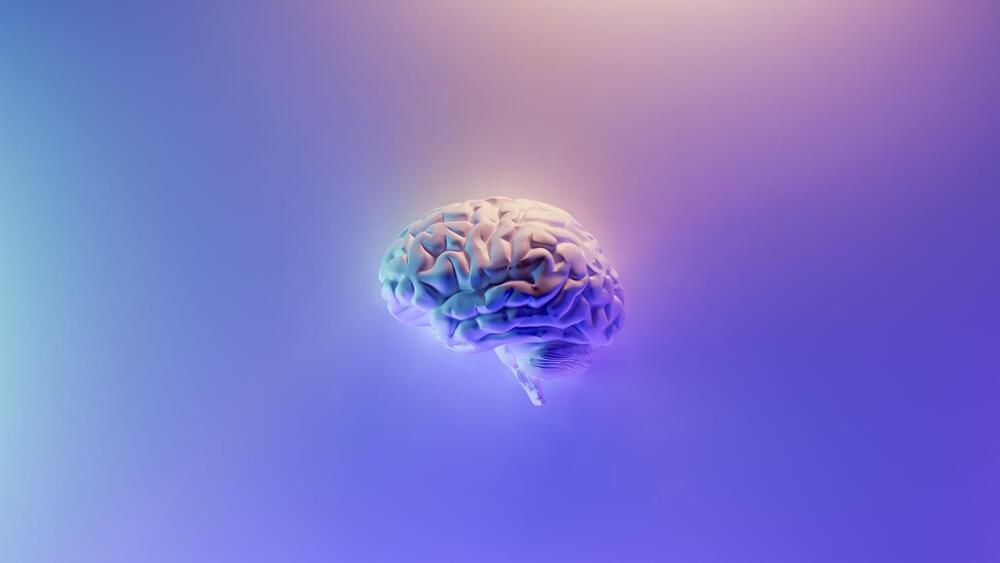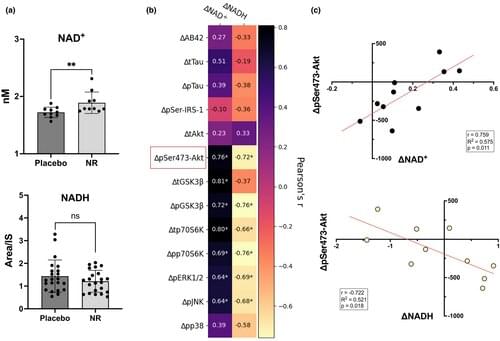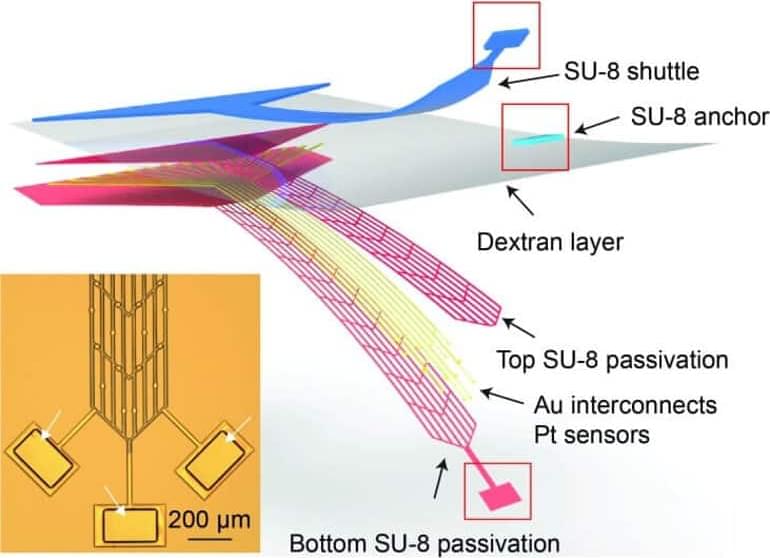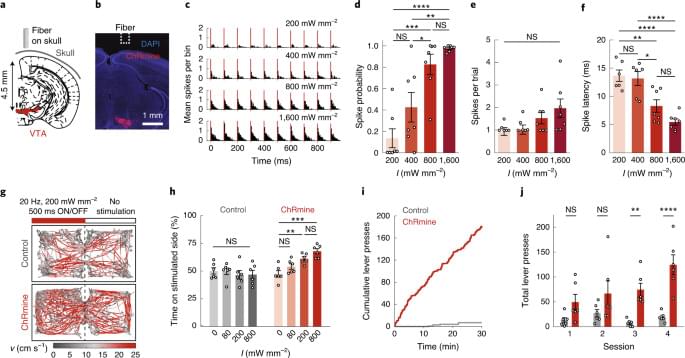A bioelectric material can potentially be used for treating neurological diseases or even creating next-generation pacemakers.



“People on metformin have 30% lower rates of almost every kind of cancer. It delays cognitive decline. Even people with diabetes who are obese and have more disease to start with but are on metformin have lower mortality rates than people without diabetes who aren’t on the drug.”
What he says is born out in numerous studies. Overall, this safe, super-cheap, decades-old drug not only treats diabetes, but it also seems to delay and compress the years of chronic illness associated with the final stage of life and extend what geroscientists call the “healthspan.”
Metformin is just one of many medications, including other old ones and some brand new inventions, that academic researchers and biotech startups are exploring to slow, stop, or perhaps even reverse aging.

For the first time, a researcher at the University of Delaware College of Health Sciences in collaboration with a team at the National Institute on Aging, a division of the National Institutes of Health, has determined that the naturally occurring dietary supplement known as nicotinamide riboside (NR) can enter the brain.
The discovery was made by Christopher Martens, assistant professor of kinesiology and applied physiology and director of the Delaware Center for Cognitive Aging Research, and Dr. Dimitrios Kapogiannis, a senior investigator at the National Institute on Aging. The finding is significant because it supports the idea that NR, upon reaching the brain, can alter the metabolism of relevant biological pathways involved in neurodegenerative diseases like Alzheimer’s. Their work was recently published in the journal Aging Cell.
Upon consumption, NR is readily converted into nicotinamide adenine dinucleotide (NAD+), which is critical to cellular repair and the repair of damaged DNA.
John Vervaeke and Donald Hoffman talk about infinity, ego, death, non-dualism, and what is reality. Sponsors:
- Brilliant: https://brilliant.org/TOE for 20% off.
- Masterworks: https://www.masterworks.com promo code TOE
- Shopify: https://www.shopify.com/theories to start your free trial.
*New* TOE Website (early access to episodes): https://theoriesofeverything.org/
Patreon: https://patreon.com/curtjaimungal.
Crypto: https://tinyurl.com/cryptoTOE
PayPal: https://tinyurl.com/paypalTOE
Twitter: https://twitter.com/TOEwithCurt.
Discord Invite: https://discord.com/invite/kBcnfNVwqs.
iTunes: https://podcasts.apple.com/ca/podcast/better-left-unsaid-wit…1521758802
Pandora: https://pdora.co/33b9lfP
Spotify: https://open.spotify.com/show/4gL14b92xAErofYQA7bU4e.
Subreddit r/TheoriesOfEverything: https://reddit.com/r/theoriesofeverything.
LINKS MENTIONED:
- Important TOE ep: Lilian Dindo: https://youtu.be/L_hI7JNsbt0
- Important TOE ep: Karl Friston (Part 2): https://youtu.be/SWtFU1Lit3M
- The Meaning Crisis: https://www.youtube.com/playlist?list=PLND1JCRq8Vuh3f0P5qjrSdb5eC1ZfZwWJ
- Donald Hoffman theolocution w/ Joscha Bach: https://youtu.be/bhSlYfVtgww.
- John Vervaeke theolocution w/ Joscha Bach: https://youtu.be/rK7ux_JhHM4
- John Vervaeke theolocution w/ Bernardo Kastrup: https://youtu.be/zw6BFDJ765w.
- John Vervaeke solo TOE podcast: https://youtu.be/3p8o3-7mvQc.
- Donald Hoffman solo TOE podcast: https://youtu.be/CmieNQH7Q4w.
TIMESTAMPS:
00:00:00 Introduction.
00:03:10 Zen, intelligibility, and Neoplatonism.
00:05:26 Physics and consciousness.
00:07:16 Spacetime and Nima Arkani Hamed.
00:09:34 What do they find impactful about one another’s work?
00:14:27 What does “fundamental” mean?
00:22:08 Reality vs. Fundamentality.
00:25:07 Gödel’s incompleteness is NOT about TOEs.
00:35:49 Science predicts its own demise.
00:46:00 Psychosis, derealization, and the terror of delving into TOEs.
01:02:17 Morality and “the ego“
01:08:04 Infinity and “the one“
01:28:47 Coleman Mandula theorem.
01:31:59 Debate: Spacetime is real vs. unreal.
01:52:03 Reality, evolution and infinity.
02:08:35 Truth, misframing, and love.

Hey folks, I’m excited to share a new essay with y’all on my proposed route towards nanoscale human brain connectomics. I suggest that synchrotron ‘expansion x-ray microscopy’ has the potential to enable anatomical imaging of the entire human brain with sub-100 nm voxel size and high contrast in around 1 year for a price of roughly $10M. I plan to continue improving this essay over time as I acquire more detailed information and perform more calculations.
For a brief history of this concept: I started exploring this idea during undergrad (working with a laboratory-scale x-ray microscope), but was cut short by the pandemic. Now, I’m working on a PhD in biomedical engineering centered on gene therapy and synthetic biology, but I have retained a strong interest in connectomics. I recently began communication with some excellent collaborators who might be able to help move this technology forward. Hoping for some exciting progress!
By Logan Thrasher Collins.
Step one for uploading your brain after the singularity… keep it cognitively functional until then.
It’s been estimated that one in three cases of dementia is preventable. You can’t do anything right now to stop or reverse the underlying mechanisms of Alzheimer’s disease, but you can do something about hypertension and vascular disease risk factors.
#dementia #alzheimer #doctor #healthylifestyle #health #intermittentfasting


Summary: Recent studies have explored the use of psychedelics for the treatment of a range of mental health disorders. A new study reveals more insightful and mystical “trips” while exposed to psychedelics may be linked to an enduring reduction of symptoms for those with anxiety and depression.
Source: Ohio State University.
A more mystical and insightful psychedelic drug experience may be linked to an enduring reduction in anxiety and depression symptoms, according to a new study.

Ben Goertzel in response to some common objections covered in an article on io9 by George Dvorsky ‘You’ll Probably Never Upload Your Mind Into A Computer’: http://io9.com/you-ll-probably-never-upload-your-mind-into-a-computer-474941498
Objections are covered in order as they appear in the article:
1. Brain functions are not computable.
2. We’ll never solve the hard problem of consciousness.
3. We’ll never solve the binding problem.
4. Panpsychism is true.
5. Mind-body dualism is true.
6. It would be unethical to develop.
7. We can never be sure it works.
8. Uploaded minds would be vulnerable to hacking and abuse.
Ben Goertzel wrote a response to the io9 article: http://hplusmagazine.com/2013/04/20/goertzel-contra-dvorsky-on-mind-uploading/